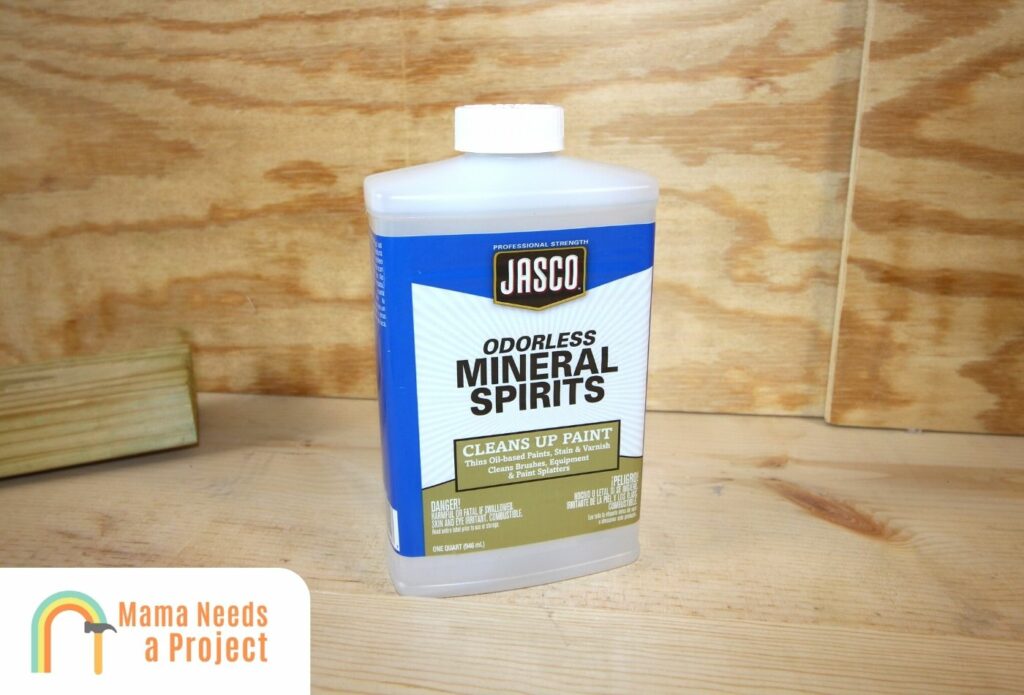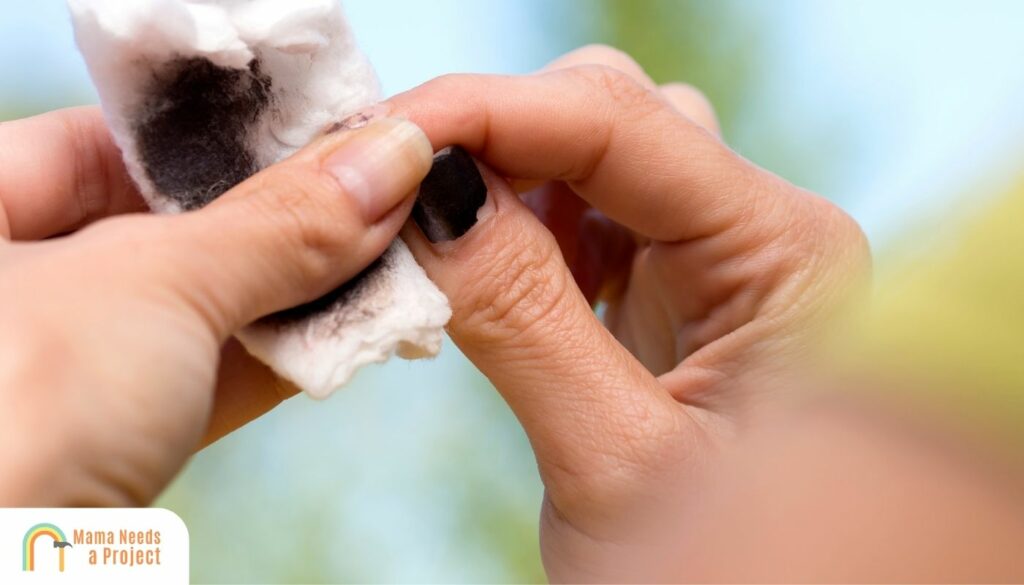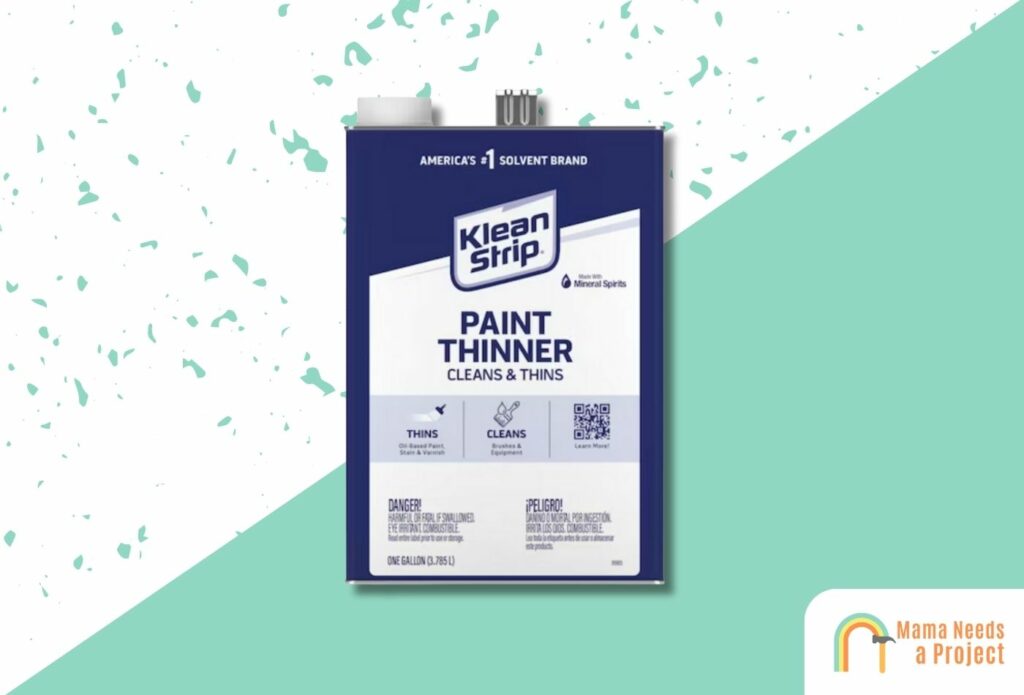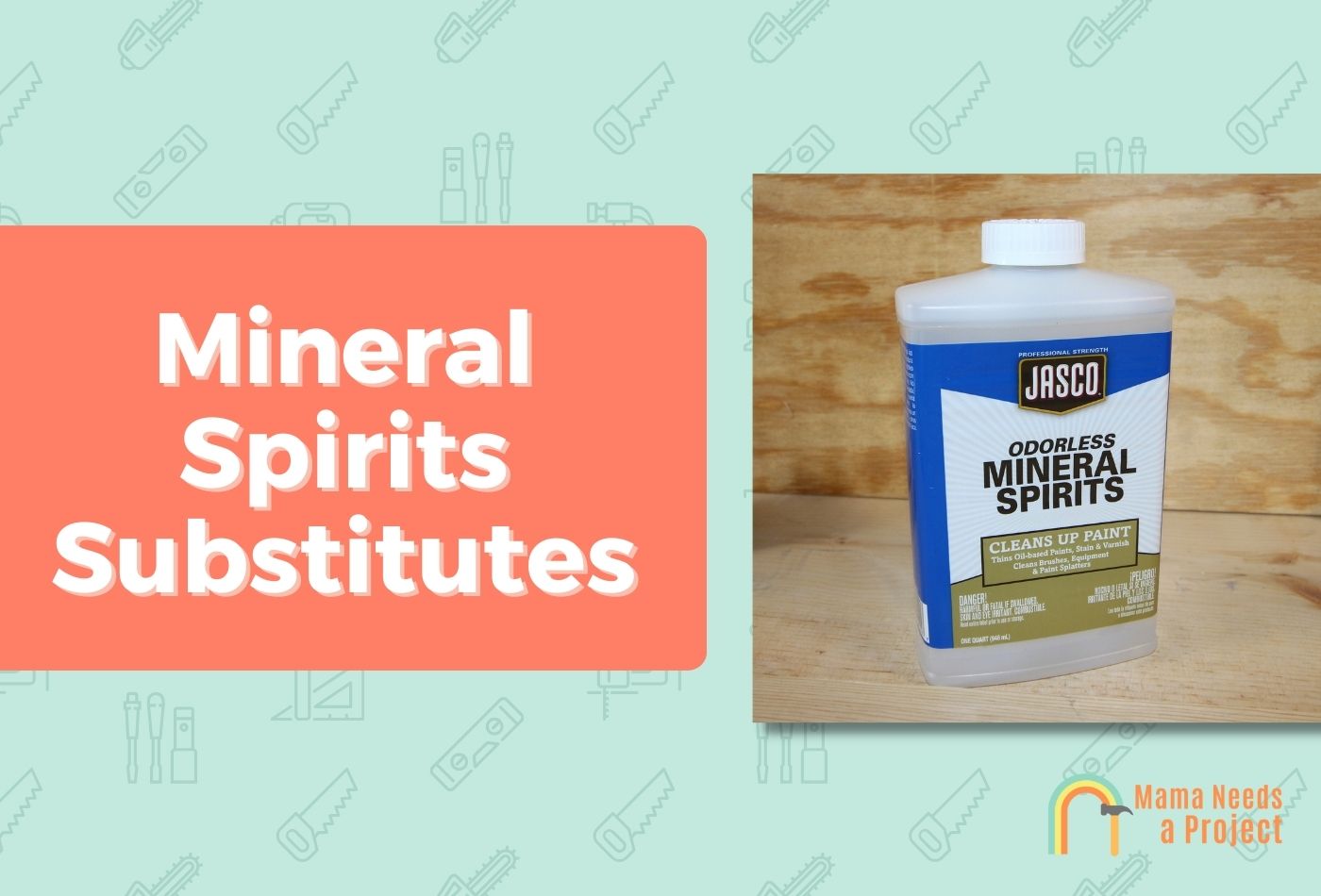11+ Mineral Spirits Substitutes (That Work Wonders!)
Mineral spirits can be an extremely handy solution that’s used for cleaning and removing paint, thinning paints, and a handful of other tasks around your home.
But what can you do if you don’t have mineral spirits on hand? Don’t worry!
In this post, I’ll explore some of the best mineral spirits substitutes that you can use to thin and clean paints. Let’s get started!
There are many excellent substitutes for mineral spirits no matter what their project is or if they have health concerns. Here are some of the best alternatives to mineral spirits:
- Acetone, Denatured Alcohol, Isopropyl Alcohol
- Charcoal Lighter Fluid, Turpentine, Other Paint Thinners
- Linseed Oil, Vegetable Oil
- Oil, Soap, and Water
- Soy Based Solvents, Citrus Solvents
What is Mineral Spirits Used For?

Mineral spirits is a petroleum based solvent that is used for thinning oil based paints and as a cleaning solution. It is also known as white spirit.
Mineral spirits can be used for several different tasks, but the most common use is cleaning paintbrushes. It can also be used to thin paint if it is too thick for a specific application. A few other uses include:
- Removing sticky residue. For example, residue from a sticker or tag.
- Cleaning scuff marks on floors.
- Restore wood that has a clear finish (lacquer or polyurethane.)
- Cleaning oil-based paint spills.
- Degreasing agent.
Pros of Mineral Spirits
- Many different uses
- Less odor than paint thinners
- Inexpensive
Cons of Mineral Spirits
- Flammable
- Toxic
11 Mineral Spirits Alternatives
1. Acetone

Acetone (nail polish remover) is a surprising dupe for mineral spirits. The solvent can be used to clean and remove grease from surfaces like glass, metal, and plastic. This is an advantage over mineral spirits since mineral spirits can damage some plastic surfaces.
Acetone, unlike mineral spirits, doesn’t have a strong odor and can be used without protective gear like a mask. You should be careful not to get it directly on your skin since this can dry out your skin over time, however.
2. Charcoal Lighter Fluid
Another surprising alternative to mineral spirits is lighter fluid! Since it is usually made from petroleum base (aka mineral spirits), it has the same cleaning effects that mineral spirits have.
You definitely need to be careful when using it since it is an EXTREMELY flammable liquid and has a strong kerosene odor.
This is something that can be used in a pinch, but I wouldn’t recommend buying it exclusively as a mineral spirits substitute. There are better options out there.
3. Isopropyl Alcohol
Isopropyl alcohol (rubbing alcohol) is an excellent substitute for mineral spirits. It is less toxic and works great to remove paint from paintbrushes and trays.
Rubbing alcohol is also cheaper and potentially easier to find than mineral spirits. It is also widely used as a disinfectant – making it a great multipurpose solution to have in your home.
4. Turpentine
Turpentine is another well-known substitute for mineral spirits. However, it is more toxic than mineral spirits and has a much stronger odor. You will need to work in a well-ventilated area and use protective masks to avoid breathing in the toxic fumes.
It does work well for cleaning oil-based paints from brushes, surfaces, and paint sprayers, so it still is worth considering if you protect yourself properly.
5. Natural Oils
If you would rather use non-toxic chemicals to clean your brushes and other paint spills, here are a few natural oils that you should consider. Keep in mind that these oils will require a bit more elbow grease to clean up those hard-to-clean messes.
Linseed Oil
You can use linseed oil by mixing it with soap and water to create a all natural cleaning solution for your paint brushes. Linseed oil is the best choice if you use high-quality natural bristle brushes because the oil protects the bristles.
You can also use safflower oil.
Vegetable Oil
Vegetable oil is best used as a cleaner for paint spills or sticky surfaces. It certainly isn’t the most effective substitute, but if you’re concerned about toxic chemicals and fumes, then it wouldn’t hurt to give vegetable oil a try on your next paint mess.
Use a clean cloth, vegetable oil, and some elbow grease to remove unwanted paint or residue from any surface. Wipe off excess oil once your surface is clean.
There’s a good chance you have vegetable oil in your home already – making it a great mineral spirits substitute.
6. Oil, Soap, and Water
I know what you’re thinking…oil and water don’t mix. But hear me out. If you mix oil (like linseed oil) with soapy water you can clean surfaces that have sticky residue and oil based paints on them.
Maybe not the most effective choice on the list, but it’s worth a shot to avoid any fumes, chemicals, or volatile organic compounds that could harm you.
7. Organic Solvents
Another great option to keep things safe is organic solvents. Here’s a couple worth considering:
Soy Based Solvents
Soybeans are being used for all kinds of household items from candles to milk and now to cleaning solutions! You can use soy solvents to clean paint rollers and brushes and to thin oil based paints. The best part? You get to avoid any harsh chemicals that come along with other substitutes for mineral spirits.
Citrus Solvent
Citrus solvents can be made from any type of citrus such as orange, lime, and lemon. These solvents are used for cleaning and thinning paint which makes them an excellent choice to keep around the house for different projects.
If you want to clean brushes or rollers simply place the brushes and rollers in the citrus solvent for several minutes and allow it to penetrate into the paint. Once the paint has loosen from the brushes rinse thoroughly with water.
8. Denatured Alcohol
Denatured alcohol is ethanol that has additives put into it to make it taste bad, smell bad, and in some cases, poisonous to turn people off from consuming it recreationally. Though you can’t drink it, you CAN use it as a substitute for mineral spirits!
It is best used as a cleaning agent and not for thinning oil based paint. Be wary and do not get denatured alcohol on your skin or inhale the toxic fumes. Use in a well ventilated area and use gloves and a mask to protect your health.
9. Other Paint Thinners

“Paint thinner” is a broad term that refers to many different solutions such as acetone, turpentine, toluene, naphtha, and mineral spirits. All the paint thinners listed here work the same though they are derived from various materials.
It is important to note that many DIY woodworkers like to use mineral spirits in the place of other paint thinners because they don’t have as strong an odor. On the other hand, most other paint thinners are cheaper than mineral spirits which is sometimes twice as expensive.
Here’s a great video explaining the different kinds of uses of Mineral Spirits.
FAQs
Can I Use Nail Polish Remover Instead of Mineral Spirits?
if the nail polish remover is acetone, then yes, you can use it as a substitute for mineral spirits. Non-acetone nail polish removers probably won’t have the same effect, so I suggest avoiding those for this type of project.
What Is the Best Thinner for Oil-Based Paints?
If you’re okay with dealing with possible fumes and toxins then either mineral spirits or turpentine are highly recommended for thinning oil based paints. However, if you want to avoid any kind of toxic chemical exposure, try using either a soy based or citrus solvent to thin oil based paint.
Is Paint Thinner Mineral Spirits?
Yes, thought a better way to say it is, “mineral spirits is a paint thinner.” Paint thinner is a broad term used to describe several different solutions that can be used to thin paint.
Is Lacquer Thinner the Same as Mineral Spirits?
No they are not the same thing. Lacquer thinner is meant to be used specifically with lacquer and shellac. Mineral spirits thins paints and is used as a cleaning agent.
Final Thoughts
There are many different ways to clean paint brushes and thin paint, and there are options out there for everyone. It’s great to know that there are mineral spirits solutions that exist for those who want to avoid chemicals, but if the job requires it, there are plenty of heavy duty options available too!

Miriam Ronne wears many hats, including but not limited to freelance writer, blogger, professional quilter, serial DIYer, and obsessed dog mom. She loves to teach beginners how to do all sorts of crafts and techniques. If she’s not writing her next blog post, she’s either sewing a new project or playing with her pup. You can find Miriam on her blog, Stitch Obsessed, or connect with her on Instagram.

